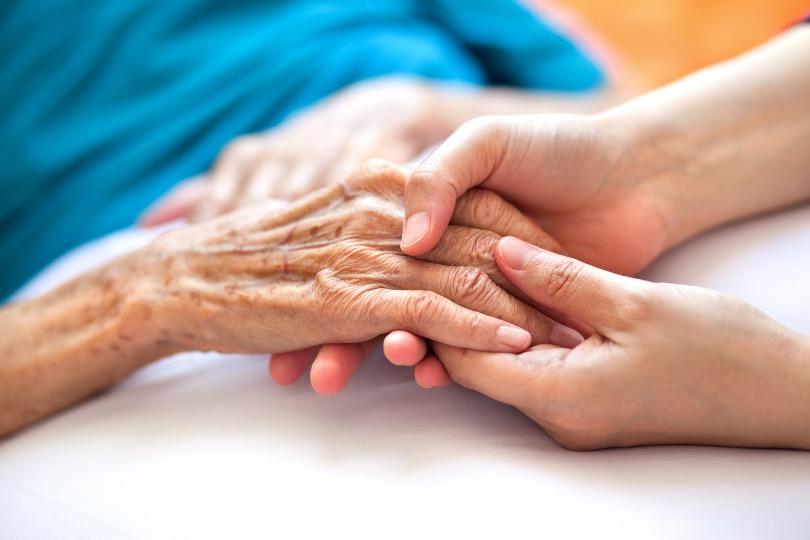Aging is a complex phenomenon characterized by changes in cognitive and psychological functioning. It is thus paramount to: (i) examine age-related changes characterizing these aspects, along with the underlying mechanisms as well as perceptions of the aging processes that could explain them; and (ii) promote and sustain the everyday functioning and quality of life among older adults, independently of their aging trajectories (typical vs pathological aging), developing intervention strategies and prevention programs that always consider the role of individual differences in explaining aging effects.
HEALTHY AGING
Assessment

– Unlike what one might commonly think, not all of us undergo the same age-related cognitive and psychological changes. The aging process is, in fact, characterized by a high interindividual variability, meaning that individuals age differently from one another. We focus on the assessment of age-related and individual differences between young and older adults, and age changes from an adult lifespan perspective, in core cognitive mechanisms (e.g., working memory, inhibition), complex cognitive abilities (e.g., text processing, spatial cognition, everyday problem solving) and memory functioning (e.g., episodic memory) also considering the role of personality as well as of metacognitive on cognitive functioning (e.g., spatial cognition, memory).
– It is well-known that sleep quality represents a key health indicator of an individual and functioning throughout the lifespan. We investigate the association between sleep quality and psychological outcomes, such as quality of life, in older age, as well as how and to what extent individual characteristics like personality and sleep-related metacognition, i.e. metacognitive beliefs and metacognitive thought control strategies, are related to sleep quality in the adult lifespan.
– To comprehensively capture the complex and multifaceted nature of age-related changes in cognitive and non-cognitive outcomes (e.g. emotional functioning), it is fundamental to have reliable and valid tools designed for adults and older adults. We design batteries and tools for: (i) a multidimensional assessment of cognitive, psychological and emotional functioning, (ii) everyday functioning across the adult lifespan.
– We are also interested in detecting well-known protective factors against age-related cognitive decline, such as cognitive reserve proxies. We designed a new questionnaire, the Current and Retrospective Cognitive Reserve (2CR) survey. The 2CR represents a new and reliable survey for assessing classical cognitive reserve proxies (socio-economic status, engagement in leisure and social activities) and new ones (family engagement, religious/spiritual activity) both currently (in later adulthood) and retrospectively (as recalled from younger adulthood) within a multidimensional, “life stage-dependent” framework. Its relationships with cognitive and psychological aspects makes the 2CR a promising questionnaire.
– We examine subjective views of aging among typically-aging older individuals, with a particular focus on self-perceptions, attitudes, and expectations regarding age-related cognitive changes, integral components of the subjective aging experience of adults and older adults. Their relationship with individual characteristics, such as personality, resilience, as well as well-being and quality of life among older adults is examined.
We adapted the Italian version of the Awareness of Age-Related Change (AARC) questionnaire [Brothers et al., 2019], capturing individuals’ self-perceptions of age-related gains and losses in different domains of functioning.
– Consapevolezza dei Cambiamenti correlati all’invecchiamento (CCCI) – 50 items [the link to the questionnaire will be available soon]
– Consapevolezza dei Cambiamenti correlati all’invecchiamento (CCCI) – 10 items [the link to the questionnaire will be available soon]
We are finalizing a new and reliable instrument to assess self-perceptions and views of cognitive aging for older adults, which would be useful in clinical and applied settings. These activities are carried out within the project funded by Next Generation EU – “Age-It – Ageing well in an ageing society” project (PE0000015), National Recovery and Resilience Plan (NRRP) – PE8 – Mission 4, C2, Intervention 1.3.
Interventions

The detrimental costs associated with cognitive aging have driven research to identify effective solutions to support older adults’ cognitive functioning and promote their autonomy and well-being. Cognitive interventions represent a promising answer to counteract/delay age-related cognitive decline, so as to promote an active aging.
We design verbal and visuo-spatial working memory (WM) training programs for healthy older adults, and we are interested in understanding the role of individual characteristics and training features (e.g., music listening, teaching strategies as pre-training activities) in influencing the efficacy of such cognitive interventions. We seek to understand whether WM training could promote endurable transfer effects to everyday functioning both in young-old and old-old adults, as well as their psychophysiological correlates.
We also design strategic-metacognitive interventions targeting (episodic) memory, and we are interested in understanding the efficacy of programs that adopt a metacognitive approach, or that use metacognitive programs as supplement activities to cognitive -WM- training, in supporting cognitive and metacognitive functioning of older adults.
PATHOLOGICAL AGING
Dementia is a major cause of disability and dependency among older adults, with tremendous negative consequences for both people with dementia and their caregivers’ quality of life.
Loneliness represents one of the major health issues among older adults with neurocognitive disorders. We are interest in assessing the role of loneliness in explaining the cognitive, behavioral and psychological functioning of people with dementia, as well as its association with the perceived quality of life of people with dementia living in residential care homes.
We are also interested in examining the interplay between caregiving-related outcomes and views of aging among informal caregivers experiencing the stressful situation of caring for a relative with dementia.
Cognitive Stimulation Therapy (CST) and other psychosocial interventions

Identifying effective psychosocial (non-pharmacological) interventions that allow to support the cognitive and psychological functioning of people with dementia has become of interest in recent years.
We developed the Italian adaptation of the Cognitive Stimulation Therapy protocol (CST-IT) and have examined its efficacy for Italian people with mild-to-moderate dementia, examining the role of individual characteristics in influencing its efficacy.
Other psychosocial (non-pharmacological) interventions beneficial for people in more advanced phases of this neurocognitive disorder (severe dementia), such as doll therapy and horticultural therapy programs, were also used and their benefits in both cognitive and psychological functioning have been assessed.
RESEARCH during and one year after the spread of COVID-19 PANDEMIC
The COVID-19 pandemic did not stop us!
Emotion Regulation, Hope, and Optimism During the Third Wave of the COVID-19 Pandemic: The Role of Age and Personality. This study conducted one year after the start of the COVID-19 pandemic confirmed older adults’ advantage, compared to younger ones, in facing the emotional and psychological fallout of the emergency in its third wave. Long-term emotional/psychological consequences were also shown to be related to personality traits.
Cognitive, emotional and psychological functioning throughout the COVID-19 pandemic in young and older adults. This one yearlong study has showed that older adults better face an unexpected and prolonged stressful situation, like the COVID-19 pandemic, better than younger generations, thanks to their emotional resilience.
Sleep quality and sleep-related metacognition in young and older adults before and during the lockdown. Though lockdown seemed not to have an impact on sleep quality both in young and older adults, here we showed that during such a stressful event dysfunctional sleep-related beliefs (maladaptive expectations and attitudes regarding the causes, and consequences of sleeping issues) impacted sleep quality (especially among older adults).
Taking care of a person with dementia under lockdown: the case of informal caregivers. This pilot study offers insight on the effects of loneliness and resilience, as well as of other individual characteristics (e.g., gender, dementia severity), on the experience and consequences of informal caregiving for relatives with dementia in times of restrictions imposed by a pandemic.